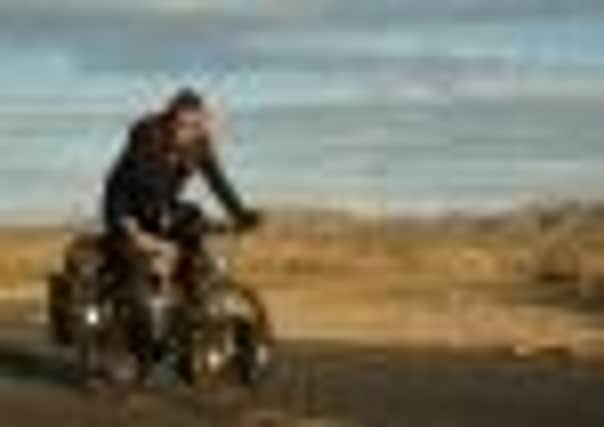Adventurer who likes to take a walk on the wild side


THERE are some people who look at a mountain and are happy just to admire its beauty. There are those who want to sit down and paint it and then there are some who possess an inward compulsion to conquer it.
Mark Beaumont falls into the last category. In 2009, as part of an extreme solo endurance challenge he not only cycled the longest mountain range on the planet, but also climbed the highest peaks in North and South America – Mount McKinley, in Alaska, and Aconcagua in Argentina.
Advertisement
Hide AdAdvertisement
Hide AdBeaumont shot to fame four years ago when he smashed the record for cycling around the world covering a staggering 18,296 miles in just 195 days.
His epic journey took him across four continents and through 20 countries, cycling an average of 100 miles a day for more than half a year, and his video diaries formed the basis of a Bafta-nominated documentary, The Man who Cycled the World, which was shown on the BBC.
Last year, he was part of the six man team that rowed through the Canadian Arctic to the Magnetic North Pole, dodging icebergs and polar bears along the way, and whose exploits were once again filmed for the BBC.
So when the Scottish-born adventurer set out earlier this year with a small team to attempt to break the rowing world record for the fastest Atlantic crossing, he was in confident mood. But four weeks into the expedition disaster struck when a wave capsized their boat, Sara G, and the crew struggled to survive for 14 hours in the water until they were eventually rescued.
Advertisement
Hide AdAdvertisement
Hide AdBeaumont recounts his near-death encounter and the impact it’s had on him in his latest “An evening with” tour, which comes to Wakefield and Halifax this week.
For the first 27 days the two triple scull teams rowed in two hour shifts and were on course to break the record.
“We were 28 days in and we’d done about 2,000 miles, we were almost there – it was a done deal,” he says. Except it wasn’t. The boat was hit by a wave just as they were swapping shifts, overturning their boat and sending the crew into the sea.
“The boat capsized and everything we needed to survive was in the boat; communications equipment, fresh water, and all the kit,” he says.
Advertisement
Hide AdAdvertisement
Hide Ad“I’ve been in dangerous situations before but I never thought I would die, so this was a heck of an ordeal because we were as good as dead.”
Between them they somehow managed to rescue the waterproof laptop case that also contained a satellite phone which they used to raise the alarm. They were eventually rescued in the middle of the night by a Taiwanese cargo ship that had been alerted to their mayday call.
Physically, they had escaped largely unscathed but Beaumont says the psychological impact of their ordeal has taken longer to come to terms with, although he wants to share his experience with people. “I think it’s an important story to tell because it’s about survival and the ultimate fight to stay alive.”
But it has made him re-evaluate his plans. “I realised that the buzz for me is the challenge but also the excitement of seeing different places and people,” he says.
Advertisement
Hide AdAdvertisement
Hide Ad“I originally wanted to row across the three oceans, but being out in the Atlantic is the ultimate test because there’s nothing out there, it’s a very inward journey and I don’t want to find myself out there in a situation like that again.”
Beaumont was first inspired to go on expedition at the age of 12 after reading in a local newspaper about a cycle ride from John O’Groats to Lands End.
“I’d never cycled beyond the farm where I grew up before, so it seemed amazing to me. I remember getting the road atlas out and looking at the route.” Three years later, at the age of just 15, he cycled the route himself.
He became what he calls a keen amateur adventurer but it was only after finishing university that he began to look at ways of making a career out of it. “I think a lot of people like the idea of being an adventurer but there’s a lot of hard work goes on behind the scenes, it’s ain’t easy and not many people make an adventure career work.”
Advertisement
Hide AdAdvertisement
Hide AdAt the age of 29 he isn’t finished with adventures, he just won’t be rowing across oceans any time soon.
“I don’t want to still be doing this when I’m 65. I’m getting married soon and I’ve got to plan for the next 10 years. I still want to do expeditions, but I don’t want to risk life and limb.”